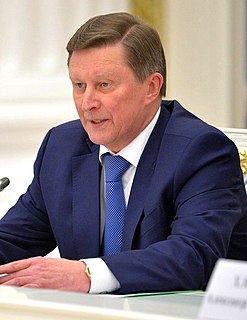A Quote by Michael Hastings
An information operations team was sent to Afghanistan to conduct various psychological operations on the Afghans and Taliban. The team was then asked not to focus on the Taliban but on manipulating senators into giving more funds and troops [to the war].
Quote Topics
Related Quotes
What NATO troops are doing in Afghanistan is to train, assist and advise Afghans, but they are actually doing the fighting. They are actually taking the responsibility for the security in their own country. And that is a great achievement, compared to what we saw just a few years ago, when NATO troops had to conduct the combat operations fighting the Taliban.
In mid-November 2001, as they moved toward the city of Kandahar, the Taliban's de facto capital in southern Afghanistan, Amerine's team called in airstrikes against advancing Taliban units and more or less obliterated a Taliban column of a thousand men that had been dispatched from Kandahar. It was the Taliban's final play to remain in power.
But we have achieved at least two important things. Afghanistan is no longer a safe haven for international terrorists. We have a strong Afghan army, which is fighting the terrorists and Taliban. And the second thing is that they are able to do that without us being there to conduct the combat operations.
When the United States first went into Afghanistan in 2001, it devastated the Taliban and Al Qaeda in a matter of weeks using only a few hundred C.I.A. and Special Operations personnel, backed by American air power. Later, when the United States transitioned to conventional Pentagon stability operations, this success was reversed.
It seems perverse to focus too much on the casualties or hardship in Afghanistan ...[Showing the misery of Afghanistan ran the risk of] promoting enemy propaganda...we must talk about how the Taliban are using civilian shields and how the Taliban have harboured the terrorists responsible for killing close up to 5,000 innocent people.
What everyone underestimated was the acute unpopularity of the Taliban, even in the Pashtun areas. People like myself were saying the Taliban would be driven out very swiftly from the north of Afghanistan, but given that their main support base was in the Pashtun belt, there would be greater resistance there. That didn't happen. The Taliban had become deeply unpopular and were actually discarded by the Pashtun population almost as quickly as they were in the north. I don't see the Taliban coming back in any way.
But the frightening aspect is that it's part of a larger effort from the Pentagon to tear down the wall between public affairs and propaganda, and essentially say there is no difference between information operations, public affairs and psychological operations. It's all one and the same. They have a new name for that too, it's called Information Engagement.
Americans worry that Afghanistan has become a petri dish in which the germs of Islamic fanaticism are replicating - soon Afghans will be hijacking American planes and bombing embassies everywhere. And their fears are not necessarily unfounded. The Taliban are unemployed war veterans, ready and even eager to return to the battlefield.






























